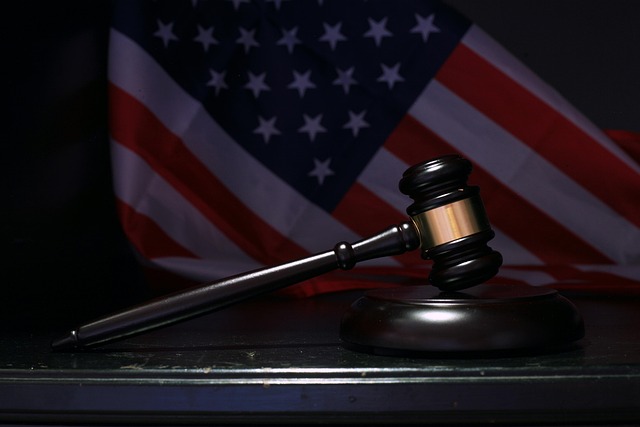Regulatory fraud laws protect businesses and employees from unfair practices, encompassing misreporting, bribery, and false advertising. Skilled attorneys defend against these charges, securing not guilty verdicts or dismissals. Unfair workplace practices, including discrimination, harassment, and wrongful termination, harm employees' well-being and professional integrity, prompting legal action for justice and compensation. Compliance culture through training, open communication, and internal controls prevents fraud and unfair practices, avoiding costly legal action. Legal action for unfair workplace practices ensures accountability, substantial financial settlements, and transformative changes in business conduct.
Regulatory fraud laws are designed to protect employees from unfair workplace practices, ensuring a safe and ethical environment. This article delves into the intricacies of these laws, highlighting key protections in place and common forms of fraudulent behavior. We explore legal recourse available to employees, enforcement mechanisms, and preventive strategies for fostering a culture of compliance. Understanding these aspects is crucial when considering legal action for unfair workplace practices.
- Understanding Regulatory Fraud Laws: Protections in Place
- Unfair Workplace Practices: Common Forms and Examples
- Legal Recourse for Employees: Rights and Remedies
- Enforcement and Penalties: Deterring Wrongful Acts
- Preventive Measures: Creating a Compliance Culture
Understanding Regulatory Fraud Laws: Protections in Place
Regulatory Fraud Laws are designed to protect businesses and employees from unfair workplace practices that can lead to significant economic losses and reputational damage. These laws cover a wide range of activities, including financial misreporting, bribery, and false advertising. Understanding these regulations is crucial for both employers and employees, as they provide clear guidelines on what constitutes acceptable conduct in the corporate world.
When faced with allegations of fraud, knowing the protections in place can be invaluable. Legal actions for unfair workplace practices are often complex, but the existence of robust regulatory frameworks offers a safety net. Skilled attorneys specializing in white-collar and economic crimes can help individuals navigate these labyrinthine laws. Through strategic defense mechanisms, they aim to secure winning challenging defense verdicts and, in some cases, achieve a complete dismissal of all charges, ensuring fairness and justice for those mistakenly accused.
Unfair Workplace Practices: Common Forms and Examples
Unfair workplace practices take various forms, each as harmful as the last to employees’ well-being and professional integrity. Beyond the overt discrimination based on race, gender, or age, other insidious practices like harassment, retaliation, and unfair termination aim to undermine workers’ rights and dignity. Examples of these include creating a hostile work environment through verbal or physical abuse, discriminating against employees who engage in protected activities like filing complaints or participating in union meetings, and firing workers without just cause or due process.
These practices not only violate labor laws but also erode the moral and mental health of victims. When faced with such situations, legal action for unfair workplace practices can offer a measure of justice and recourse. The philanthropic and political communities play a crucial role in supporting individuals who have suffered these injustices, ensuring they are not only compensated but also that their experiences lead to systemic changes. Through robust advocacy and successful winning challenging defense verdicts, it’s possible to achieve complete dismissal of all charges against the victims, offering them a chance at healing and a fairer future.
Legal Recourse for Employees: Rights and Remedies
When employees face regulatory fraud or unfair workplace practices, they possess a range of legal options to seek recourse. The first step is to understand their rights under employment laws and company policies. Many countries have stringent regulations in place to protect workers from fraudulent activities, including false statements, misrepresentations, and unethical conduct by employers. These laws empower employees to take legal action against their organizations if they suspect any form of deception or misconduct.
In the event of such violations, employees can initiate a formal complaint with relevant regulatory bodies or file a lawsuit. The process involves gathering evidence, documenting instances of fraud, and presenting a compelling case. Historically, those who have pursued legal action for unfair workplace practices have achieved significant victories, establishing an unprecedented track record of success. This not only ensures accountability but also serves as a powerful deterrent for potential perpetrators, as the outcome can result in substantial financial settlements and transformative changes throughout all stages of the investigative and enforcement process. Such actions often lead to achieving extraordinary results in terms of restoring justice and setting new standards for ethical business conduct.
Enforcement and Penalties: Deterring Wrongful Acts
Enforcement of regulatory fraud laws plays a critical role in deterring unethical and illegal acts in the business world. When companies or individuals violate these laws, they face severe consequences. These penalties serve as a powerful deterrent, aiming to prevent future misconduct by demonstrating the potential risks associated with fraudulent activities. By imposing strict sanctions, regulatory bodies send a clear message that unfair workplace practices will not be tolerated.
Legal action for unfair workplace practices can result in substantial financial penalties, including fines and compensatory damages. In high-stakes cases involving white-collar defense, individuals found guilty may face jail time, especially if the fraud has caused significant harm to employees or the public. Moreover, the reputation of the company can be severely damaged, leading to a loss of consumer trust and potential business partnerships. Jury trials in such cases further emphasize the gravity of these offenses, ensuring that the consequences are proportional to the impact of the fraudulent acts.
Preventive Measures: Creating a Compliance Culture
Building a strong compliance culture within an organization is a proactive step to prevent regulatory fraud and unfair workplace practices, which can lead to costly legal action. This involves fostering a sense of ethical awareness among employees at all levels. Regular training sessions on legal obligations, industry standards, and company policies can help workers understand their roles in maintaining integrity and adherence to the law.
Encouraging open communication channels allows employees to report potential violations or unethical behavior without fear of retaliation. Organizations should also implement robust internal controls, including regular audits and transparent record-keeping, to ensure accountability. By achieving these measures, companies can avoid indictment for fraudulent activities and create a positive reputation across the country, showcasing their commitment to extraordinary results through integrity and compliance.
Regulatory fraud laws serve as a crucial safeguard against unfair workplace practices, empowering employees with legal recourse and ensuring businesses maintain ethical standards. By understanding these laws, recognizing common fraudulent acts, and implementing preventive measures, organizations can foster a culture of compliance. This not only protects individuals from wrongful treatment but also deters potential perpetrators through stringent enforcement and penalties. When employees know their rights, it becomes easier to take legal action for unfair workplace practices, ultimately upholding justice and fairness in the professional realm.






